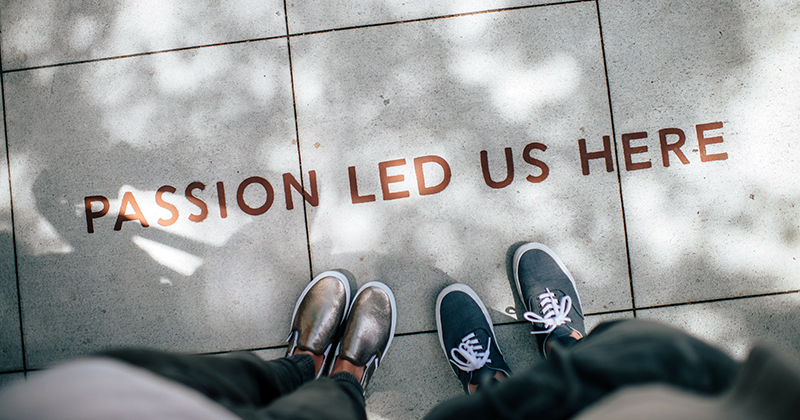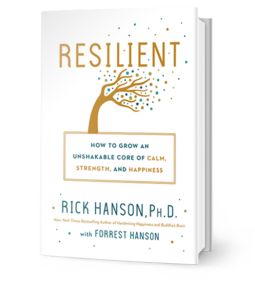
Politics & Society
How do you keep the ``Compassion Well`` from drying up in these days when there is so much suffering?
You get at a big issue, how to keep the heart open without getting overwhelmed and burned out. So relevant in so many situations, from caring to young children or aging parents, to fighting the good fight for social justice and a world without war.
I don’t have all the answers, for sure. Personally, I let myself disengage when it’s too much, fuel myself when I can, and try to see the big picture. I think of this saying (close paraphrase) from Nkosi Johnson: “Do what you can where you are with what you’ve been given in the time that you have.”
Meanwhile, I also keep trying to let go of the experiences washing through awareness, not sticking to them or them sticking to me.
As a physician I want to know: why pursue happiness practices like the ones you suggest rather than pouring 100% of one’s energy into work that saves/elongates lives?
My small answer to your big question is in three parts. First, it is of course not either-or, one can both pursue mental interventions that increase mental health while also pursuing physical interventions that increase physical health. Second, happiness practices and other mental interventions are very effective in increasing physical health, in terms of addressing the stress and lifestyle factors that are a major source of disease burden, especially in the developed world. Third, mental interventions are good for physicians and other healthcare providers themselves, in terms of improving decision-making and reducing burnout.
Why is being better than doing?
I keep trying to remember (as a major do-er myself), that it is in “being” that we usually find our deepest, most reliable refuge and refueling station – including when we rest in some sense in being as we engage “doing.”
As to those who are struggling in this world that we cannot concretely help, to me it’s important to have compassion and to bear witness and to be a stand for justice: I have faith that this is worth being and doing in its own right, and faith that in ways largely unknown this will in fact be concretely helpful somehow some day.
My question is about resilience and how to find agency in a world where we seem to be failing in so many ways (environmentally, politically).
The issue you raise is at the white-hot center of socially engaged life these days and always. I sure don’t have the answer, though I do have some personal answers. I try to explore some of them in my book, Resilient, including in the sections on “Agency, Make Your Offering”, and “Aspire Without Attachment”. As to the essence of the matter, my personal approach is to sustain wise action with as little “friction” as possible: the damage to oneself and others of getting stressed, anxious, and angry. The art of course is to tap into healthy outrage, fieriness, fierce compassion, moral disgust, etc. without getting sucked into the “poisons” (Buddhist reference) of ill will, hatred, contempt, us-against-them tribablism, etc.
It can be helpful to bring to mind admired models of this sweet spot – badass but not pissed off, alarmed but not immobilized, compassionate toward them but also toward oneself – and then imagine “channeling” them or tuning into some aspect of how in the world they stay in that sweet spot.
Meanwhile, we fight the good fight and do what we can. And stay happy meanwhile; they may have our White House, but they never need to have our minds.
How are you able to include a more diverse population to work with, both in affordability and approach?
Diversity and inclusivity are priorities for Rick and his team. The issue of different kinds of diversity – e.g., class, temperament, ethnicity, educational level, gender, age – among people who use or provide self-help resources is widespread and important to deal with. To address this issue, most everything Rick offers is for free; his paid online products have scholarships that have been used by many people. When he interviews people or teaches with them, he has tried to find diverse voices. In his own teaching and writing, he routinely makes efforts to use inclusive language and examples. We have spent significant amounts of time and money to reach out to people in Africa, Haiti, Sri Lanka, and other developing parts of the world to make his programs and books available to them, and we have taken similar steps with social service professionals and with disadvantaged communities in North America.
These are ongoing efforts and we keep looking for ways to improve them; specific suggestions are welcome. Still, Rick remains an older middle-class white male, which understandably constrains his offerings and his appeal. Given this fact, a person can find different self-help resources offered by others or engage Rick’s resources knowing their limitations. If someone decides to look elsewhere, we certainly respect that choice.
What actions should neighbors take if they suspect something amiss in their neighborhood?
A person can call anonymously into Child Protective Services (CPS – sometimes with a different title, depending on the state and county) and describe what they have seen. CPS can then decide whether to ask the person to make a “report” in which they give their name, after which CPS can decide what to do. In this way, the neighbor making the call can get a reality check on whether the experienced people at CPS think something is a real issue or not. (And if others have also called CPS with concerns about a family living nearby, coming together they add weight.) This is not about “reporting on” your neighbors but rather passing along what you see and hear to people whose job it is to make sense of and act on that kind of information.
Can you help me with the tremendous feelings of pain/guilt/helpflessness I feel because of the trauma my nation lives with?
Survivor guilt…moral injury…these terms are useful but the heart wrenching experiences you have go much deeper. I speak from lots of privilege and good fortune, so it is very respectfully that I say that I see tremendous variety in the day-to-day experiences of 7+ billion people: for some it is full of suffering, for many it is sort of OK, and for some it is full of happiness. The suffering of some does not change the happiness of others, and vice versa. If those who are happy made themselves suffer, it would not lessen the suffering of others. In fact, happiness and well-being are strengths that can be used, if one is moral, to help those who suffer.
Up to you, but for me the path combines compassion…and equanimity. And it allows each of us to find the happiness we can while we do what we realistically can to help others.
I’d like to mention a book that came across my desk recently, Healing Collective Trauma by Thomas Hubl. You might find some useful things in it.
Also, as I feel your big heart in your words, it occurs to me that shifting your attention to compassion and love when you feel heartsore about your beautiful country (distinct from its oppressive rulers), and really resting in love, taking love as a meditation object, taking love as where you dwell…well, this might be helpful too.
What advice would you give to parents whose teenage child is experiencing relationship issues in school: being bullied because of physical appearance?
I think it’s really important for the adults to find out quite concretely what is going on, and then for the school authorities to make it very very clear to the kids involved, and usually also to their parents, that bullying won’t be tolerated at all, full stop. Kids do not “work it out.” Bullying is cowardly oppressive behavior by people with more power against people with less power, and it can leave scars for a lifetime. Teachers and other school authorities typically don’t like to get involved with this – it’s messy – but, too bad, they have to. Justice requires the exercise of authority, in any setting.
Meanwhile, you can help the teenager develop inner resources to reduce the impact of the bullying, like a strong sense of being cared about by others, of personal worth, and of recognizing that the bullies are frankly full of shit and talking out of their own feelings of inadequacy and meanness.
I want to ask you to please not propagate for people to eat meat.
You’re right, there are inherent moral issues in eating meat. I’ve been a dedicated vegetarian twice before.
And – many people, including me, seem to do best eating a diet that is similar to the one that our primate, hominid, and human ancestors ate as they evolved: lots of vegetables, some nuts and fruits, and some meat. This is particularly true for those who (like me and many others) should not eat gluten grains or dairy protein, greatly reducing their options for protein.
Resolving these two things is more than a matter of convenience or inconvenience. Especially for the great many people who do not have the time to do a careful combining of foods to get enough protein through vegetable/grain sources: it’s a matter of real health.
So I named options, which is different from advocating one or another. Yet you could rightly say that naming an option such as cannibalism without moral disapproval is not good either. Are we at the point that naming the option of eating meat is like naming the option of cannibalism (or other morally repugnant actions)? I don’t know. Obviously, moral standards evolve over time, and some things considered morally acceptable a couple hundred years ago are repugnant today; some years from now, people may look back on meat-eaters with the moral repugnance we now feel for slave owners.
So I am conflicted here, and trying to be honest with you about this.
Is animal research ethical? If it is not, is it ethical to report its findings?
Like you, I am very troubled by how humans treat other life on our shared planet. If every species got one vote, I think humans would be gone the next day. As you know, animal research has a history of needless cruelty, and even when conducted by modern standards, the bottom-line is that humans are using other animals as a means to our ends, often with attendant genetic tampering, surgery, stress, suffering, or death. Definitely a violation of the prohibition against harming living beings that is central to my own Buddhist practice, as well as central to many other spiritual or secular ethical traditions.
The question is whether to report the results of animal research, which has vastly furthered our understanding of the human body and mind, notwithstanding its very disturbing origins. Does reporting it condone it?
This question doesn’t sit easy with me, I have no glib answer to it. My gut tells me that reporting animal research does indeed imply a valuing of it, and thus in some sense enables it – particularly if there is no balancing mention of the ethical issues in animal research. This possibility of enabling is uncomfortable but good to recognize.
People have different opinions about the ethics of doing animal research, and there is undoubtedly a range of views about the ethics of reporting on animal research distinct from doing it. I respect people’s rights to their views while also being grateful for your prodding and clarifying of my own.

Additional Resources
Resilient by Rick Hanson, Ph.D. and Forrest Hanson


